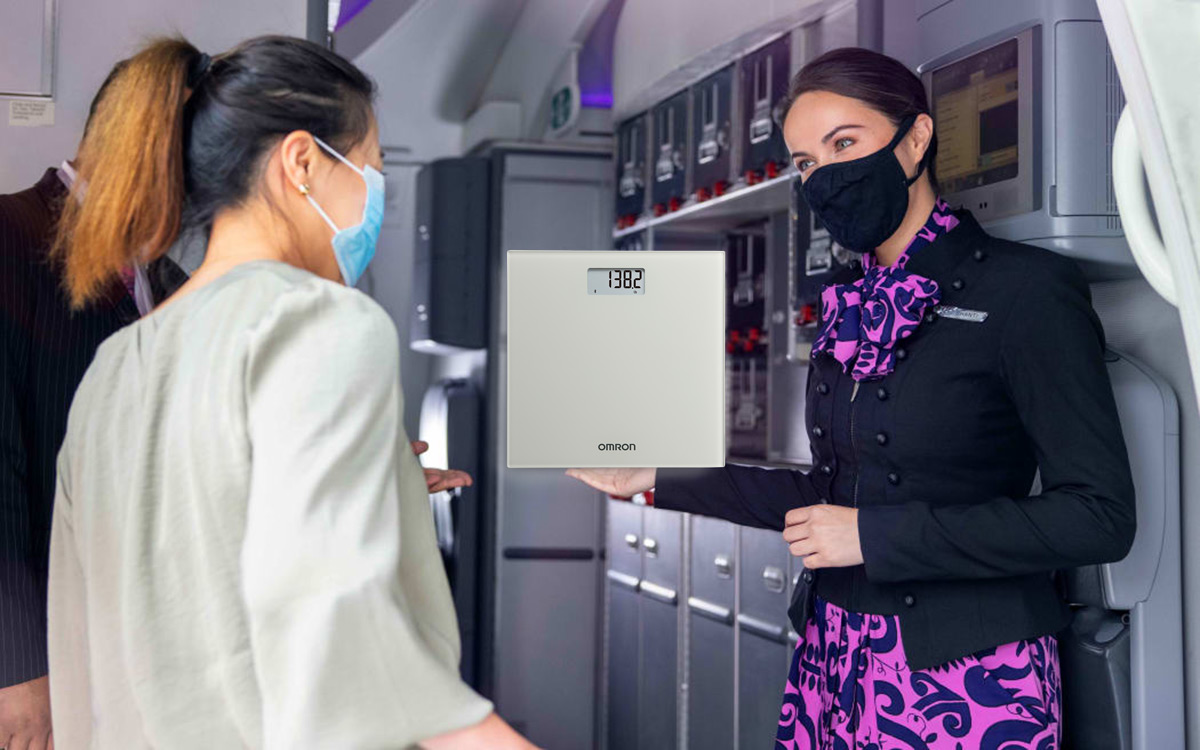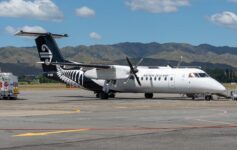
Step onto an Air New Zealand flight in Auckland over the next couple weeks and there is a good chance you will be asked to step onto a scale. What is behind this effort to better ascertain passenger weight?
Air New Zealand Is Weighing Passengers For A Good Reason
Think about what happens when you fly. Your baggage is weighed. Cargo is precisely measured. The aircraft is carefully balanced to optimize fuel consumption.
But we, the passengers, are not weighed. Instead, an average weight based upon quite dated measurements is calculated, giving airlines an average weight per passengers. In 2019, the US Federal Aviation Administration ordered US carriers to update “standard average passenger weights” and recommended surveying passengers (read: weighing passengers) in order to do so.
That did not happen: it would have caused far too much controversy (there was also that small matter of the pandemic). But United Airlines, for example, determined that these dated averages did not account for the increasing prevalence of obesity among their passengers and consequently has begun blocking a handful of seats onboard its Boeing 757 fleet during the winter season (when people travel with more personal items like heavy winter coats).
> Read More:As Americans Grow Larger, United Airlines Forced To Block Seats On Boeing 757
Meanwhile, while the obesity epidemic may not be as bad in New Zealand, flag carrier Air New Zealand is beckoning passengers departing from its hub in Auckland (AKL) to step onto a scale so that it can establish a more accurate baseline of “standard average passenger weights.”
We are conducting a survey to measure the average weight of our passengers, including cabin baggage, on international flights.
For safety reasons we need to know the weight of all items onboard the aircraft. For passengers, crew and carry on bags, we use average weights that we get every five years through this survey.
The scales do not display the weight as this is fed directly into a computer and recorded anonymously along with thousands of other passengers.
Participation is entirely voluntary and our staff will guide passengers through the weighing process. This will not delay flights and takes place before the gate to board your aircraft.
Thank you for contributing to the safe operation of our aircraft.
As explained by Air New Zealand, passengers need not worry about being fat-shamed, as there is no display of the weight. Instead, it is simply recorded anonymously on a computer database.
Passengers can opt out, which strikes me as quite problematic if mostly one type of passengers (the overweight kind) tend to opt out. It’s not like Air New Zealand is charging by the kilo and the privacy mechanism in place makes this something that should be mandatory, not optional.
CONCLUSION
Air New Zealand is updating its average weight measurements by asking passengers to step on the scale. This is not a secret plot to charge passengers of size more, but a valid initiative meant to keep everyone onboard safe. For reasons that escape me, you can opt out of this. Even so, you should not.
image: Air New Zealand (we superimposed the scale…)




No big deal. I would volunteer. Now in my 60’s, I would be the first to acknowledge some residual weight gain.
This may not be as big of a concern on large jets, but it does impact turbo props and regional jets. On an ATR turbo, the FA requested several PAX move to the front for balance.
While sitting on the last row of a regional jet, me and my seat mate were moved to 1st class to balance out the plane. Cheapest upgrade I ever got in all the time I have flown!!
There are ways to do this without physically weighing passengers in public. There are other agencies in most countries that collect his kind of statistical data (average weight of different demographics) which can then be combined with sampled weights of hand luggage being carried on board. You can also do a reverse performance calculation from fuel burn (expected fuel burn vs actual fuel burn given specific passenger loads) to determine if the average weights are increasing.
Exactly what I was thinking as well before reading your comment.
Or you weigh the people and get the most accurate measure vs relaying on estimates and math.
New Zealand? Obviously another way to oppress their citizens and show them who is boss after their barbarian actions years after Covid was found to be a fraud.
The government of Uganda treat gays better than this 3rd world sh&thole treats its people.
You did read that it was voluntary and not mandatory, right?
Please please make this mandatory on Spirit/Frontier (extra charge above average BMI). The airport experience will just be plain funnier
I wouldn’t say ANZ is immune to larger passengers by nature of obesity being less common among New Zealanders. Obesity is a growing problem among Pacific people. Auckland has what is probably the largest Pacific community in the world, and ANZ serves numerous destinations in the Pacific. They’re not exactly accounting for domestic flights on JAL.
Matthew, you’re right that the collected data would be skewed if a substantial proportion of obese people opted out (sat 15% or more.)
This “survey” is essentially so the airline can find ways to either save money on fuel or charge more in the long run on tickets based on new averages.
This is why the survey probably won’t get the attention they want from passengers because people are not fooled anymore by airlines using “health and safety” as a guise to gather more personal data to increase profits. Everything is about a bottom line with a commercial airline and they have it down to a sweet science.